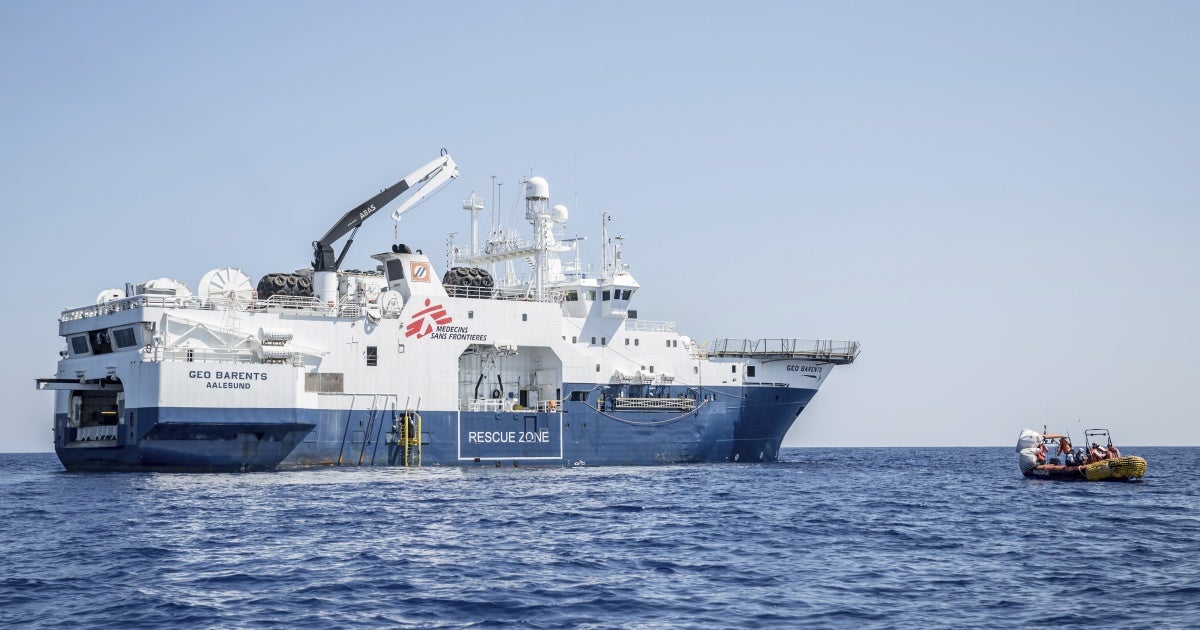On August 23, I was aboard the Geo Barents, the rescue ship operated by the humanitarian organization Médecins Sans Frontières (Doctors without Borders or MSF), in the port of Salerno when the news arrived that the ship was to be detained by authorities for 60 days. Instead of witnessing lifesaving efforts in the Mediterranean Sea, I was witness to the Italian government’s callous obstruction.
On September 4, Italian authorities detained another rescue vessel, the Sea Watch-5, marking the 24th time they have used a 2023 law that allows authorities to fine rescue shipmasters and detain or even seize ships on spurious grounds. The law also requires rescue ships sail to a designated port after each rescue, usually far from the areas where they undertake search and rescue missions.
These measures severely limit rescue capacity in the Central Mediterranean, one of the deadliest migration routes in the world. Since 2014, more than 30,000 people have died or gone missing attempting to cross the Mediterranean.
They also make it more likely that Libyan forces will intercept boats and take migrants, asylum seekers, and refugees back to Libya where, according to the United Nations, they face systematic and widespread abuse including arbitrary detention, sexual and other violence, torture, and forced labor.
This appears to be the intention.
Italian authorities accuse the Geo Barents, like other rescue ships, of failing to comply with orders from Libyan authorities. MSF says its crew was, in fact, awaiting further instruction from a Libyan patrol boat when it saw dozens of people in an overcrowded boat end up in the water. They rushed to help—as basic humanity and the law of the sea require—and saved everyone.
There is a wealth of evidence that shows Libyan Coast Guard and other forces are unreliable, unprofessional, and can be dangerous. The UN has also found evidence of collusion between the Libyan coast guards and trafficking and smuggling networks.
MSF has appealed the detention of the Geo Barents, and there is a hopeful precedent. In June, a Calabria court ruled the March detention of an SOS Humanity ship was unlawful, concluding that the Libyan Coast Guard cannot be considered a legitimate search and rescue actor.
UN rights experts recently said Italy’s policies were “without justification” and responsible for “costing lives in the Central Mediterranean.”
Instead of obstructing humanitarian action at sea, the Italian government should respect the international law of the sea and, above all, the lives and rights of all people in distress at sea.



